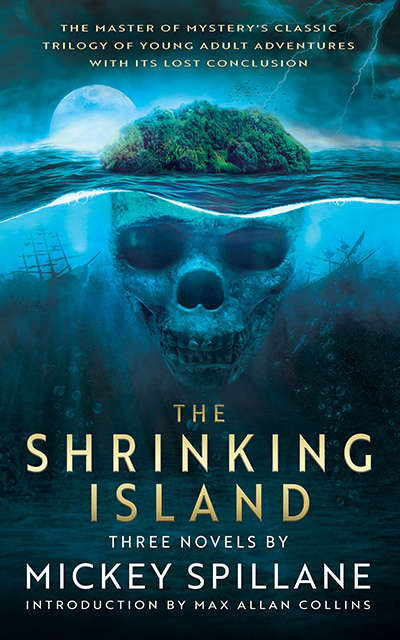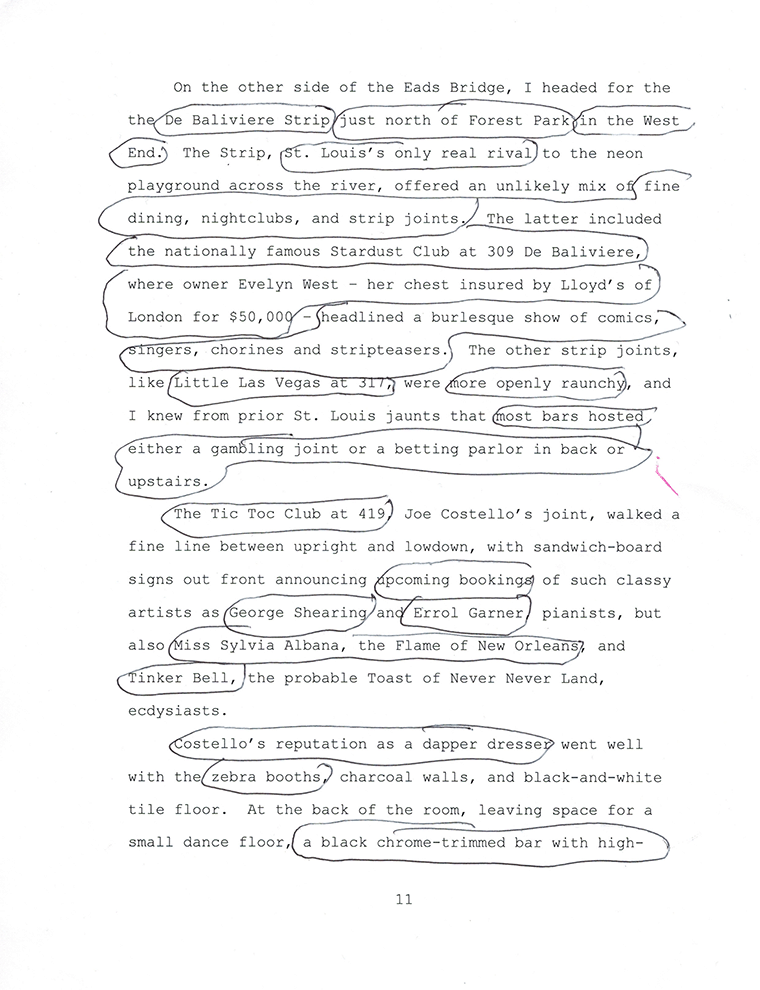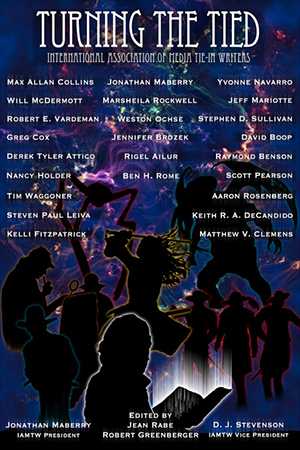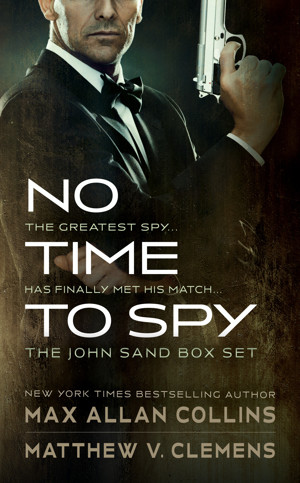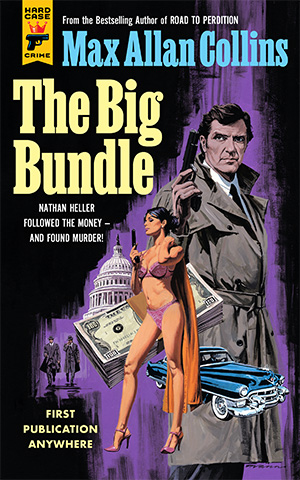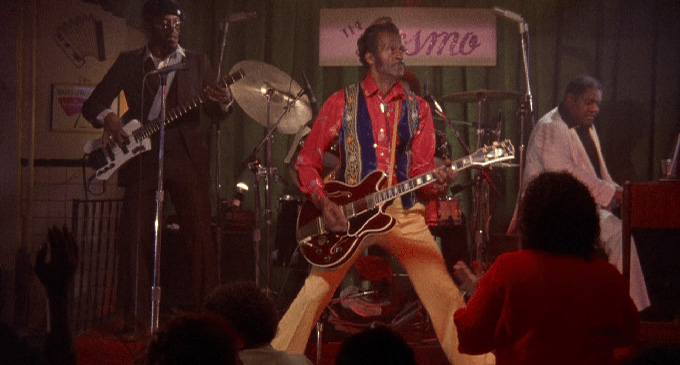As you may know, the Antiques books – the current one, Antiques Carry On is out now in trade paperback – are now published by Severn, based in the UK but also distributed here (and of course Mike Hammer’s publisher, Titan, is in England as well). So perhaps that explains the photo of a satisfied reader that we received, courtesy of our friend, Gene Eugene.
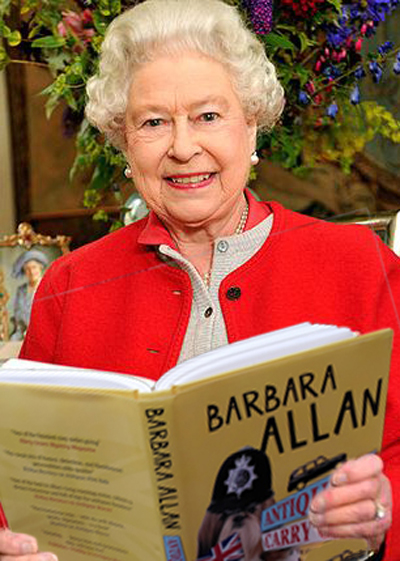
Screening of Road to Perdition last week at the Figge art museum in Davenport was fun – it was nicely attended by a somewhat captive audience of Scott Community College students who’d been assigned the graphic novel, among others whose arms had not been twisted to attend.
There was a hitch that took it from the auditorium to the lobby, where the presentation was not ideal but it served the purpose. Matt Clemens and Barb and I took questions after, and I talked too much. Apologies to one and all on that score.
I hadn’t seen Road to Perdition since the Blu-ray came out in 2010 – twelve years! I was struck that my reaction to everything I liked about the film on first seeing it and everything I hadn’t liked (big and small and in between) remained exactly the same. I still wish I’d had a crack at the dialogue, some of which I find stilted, and that the ending were mine – that Jack Lemmon hadn’t died and left the narration (obviously written for an adult looking back on his life, as in the graphic novel) to young Tyler Hoechlin, the book’s real ending scrapped for a Hollywood one.
But I still love the thing. It has such a nice mood, and it picks up on so many visuals from the book (Richard Piers Rayner, God bless you), and stays mostly true to my story. I was after a combination of big city gangster film and rural outlaw movie, and the filmmakers got that. The Paul Newman/Daniel Craig father-and-son relationship is handled better than I did. The cast remains amazing, and I still feel like I’ve won the lottery. And the speech in the church basement is beautifully written.
Over the weekend, Barb and I watched the new 4-K remastering of the three Godfather movies, and how much influence the first Godfather had on the Perdition film was incredibly obvious – in a good way. Several critics at the time called Perdition the best mob film since The Godfather and Godfather 2, and I don’t disagree.
One of my few career regrets is that we never got Road to Purgatory made. My buddy Phil Dingeldein and I worked mightily to get that done. I still have a script for it that I’m proud of…and which I hold the rights to.
If anybody’s interested, now’s the time. Hoechlin has grown up in a super fashion, and Stanley Tucci can be found in a kitchen somewhere. (We killed everybody else.)
Things in publishing have two speeds: slooooooooow, and effing fast.
I just delivered The Big Bundle to editor Charles Ardai at Hard Case Crime last week, and he had it copy-edited and back to me by the weekend. Charles is incredibly fast, and has a terrific eye. He is respectful of what I write but calls ‘em as he sees ‘em, which is to my benefit. Amazingly, the book has been put to bed but for my eventually proofing the final copy-set copy.
On the other hand, Spillane: King of Pulp Fiction took quite a while to get to me from the editors at Mysterious Press (which is more typical). They have been gracious about giving me the time I need, but I will be tackling the job this week, which should be sufficient. A non-fiction book is a more demanding thing, at this stage, but I will face all kinds of fact-checking questions.
I dread the copy-editing stage, as I’ve made clear here many times. About one out of three times at bat, I get saddled with a copy editor who appoints him- or herself my collaborator, and not the person preparing the text for typesetting. I have been rewritten more times that the Holy Bible, and I take it just a little worse than God.
But this goes with the territory.
I also proofed the type-set version of The Menace, the crime/horror novel by Mickey Spillane and me, coming from Wolfpack’s Rough Edges Press. It’s a book developed by me from an unproduced film script Mickey wrote probably in the early 1980s. He had Stephen King on the brain, I think, seeing that King was developing into the kind of celebrity bestselling author that he (Mickey) had been.
In addition I read the galleys of Mickey’s The Shrinking Island (introduced by yours truly), which collects the three young adult adventure novels he wrote in the ‘70s. The title story has never been published before. It comes out soon – April 7 – and if you’re an adult Spillane fan, it’ll make a grinning kid out of you.
The first of the three Larry and Josh adventures, The Day the Sea Rolled Back, was a big influence on The Goonies. I was at Mickey’s house when he got a call from Steven Spielberg (not sure whether it was Spielberg himself or one of his “people”), inquiring about the availability of The Day the Sea Rolled Back for the screen. Mickey told whoever it was that he wasn’t interested in dealing with anybody in Hollywood except Jay Bernstein (his Mike Hammer TV producer). And before long came…The Goonies.
The other YA yarn is The Ship That Never Was. Check out this new collection. The cover, which I’m including here, is (obviously) a stunner.
Mystery Tribune lists its favorite Irish mob movies and Road to Perdition is included (no mention of the book’s author, though – who was that again?).
Syfy rates the top best eleven R-rated movies based on comic books and suggests that Road to Perdition may be the best one.
Here’s a great Bookgasm review of The Many Lives of Jimmy Leighton.
And another great Bookgasm review of Fancy Anders Goes to War.
M.A.C.
